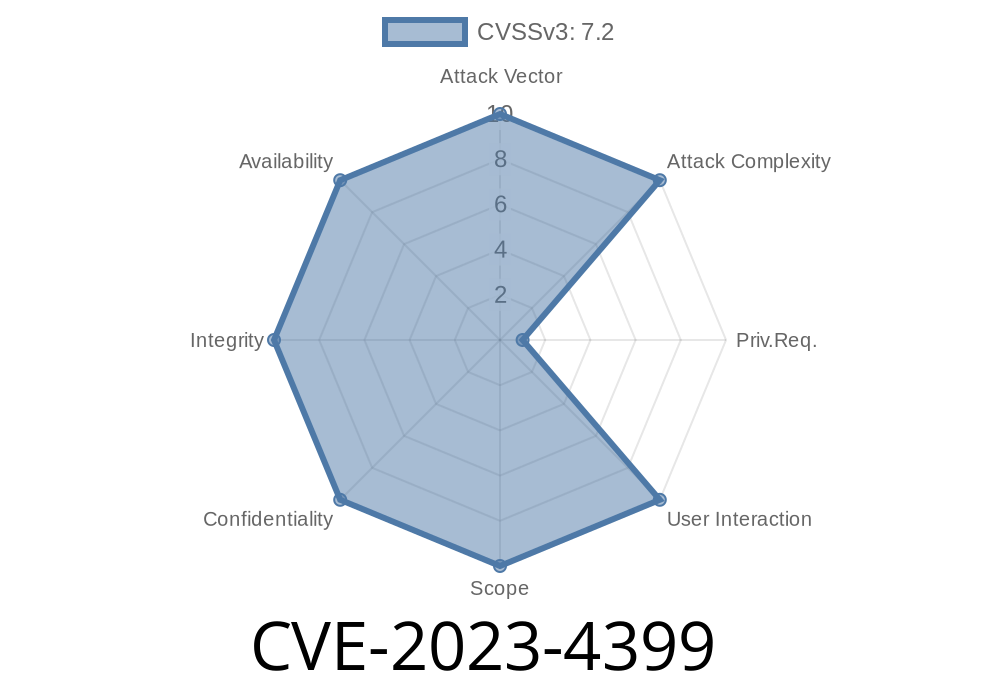Grafana is an open-source platform loved by developers and IT teams for monitoring and visualizing metrics. Many organizations trust Grafana Enterprise for critical systems. It lets you set up a *deny list*, blocking your Grafana from making requests to specific hosts (for example, sensitive internal resources or cloud metadata endpoints).
But in 2023, a clever vulnerability (CVE-2023-4399) was discovered: the deny list could be bypassed with punycode—a way of encoding Unicode characters in domain names. Let’s explore how this works, why it’s dangerous, see proof in code, and learn how to protect your systems.
Grafana Enterprise has a feature called *Request Security*
- Admins can list hosts Grafana should not contact (like 169.254.169.254 for AWS metadata, or internal.corp).
Typically, the deny list works like this
# Example deny list rules
enforce_deny_list:
enabled: true
rules:
- target: "169.254.169.254"
- target: "internal.corp"
A request to http://internal.corp/foo will be blocked.
What Is Punycode, and How Does This Bug Work?
Punycode is a way to write Unicode domain names (with accents, non-Latin letters, etc.) using only a-z, -9, and -, so DNS systems can understand.
For example, the Unicode domain tést.com turns into xn--tst-6la.com.
The bug:
Grafana only checked the *decoded* form of hostnames against the deny list. Attackers could trick Grafana by asking it to fetch http://xn--internal-v5a.corp, which (decoded) points to internal.corp—the forbidden host.
But since punycode wasn’t decoded before comparison, Grafana didn’t catch it!
User configures a deny list blocking internal.corp.
2. Malicious user creates a data source or dashboard query to http://xn--internal-v5a.corp/secret.
Let’s say you want to get Grafana to call a forbidden host. Here’s how simple it is
# Step 1: Convert 'internal.corp' to Punycode
import idna
print(idna.encode('internal.corp').decode())
# Output: internal.corp (No punycode needed unless special chars, but for hosts like 'tést' it’s 'xn--tst-6la')
# Let's say 'méta-data.local' is denied
print(idna.encode('méta-data.local').decode())
# Output: xn--mta-data-9ya.local
# Step 2: Craft a request using the punycode hostname in Grafana
url = 'http://xn--mta-data-9ya.local/secret';
# Using this URL in a data source or panel may bypass the deny list!
Curl demo
curl http://xn--mta-data-9ya.local/secret
If that resolves correctly in your DNS, Grafana will reach it—bypassing the admin’s block!
Why Is This Dangerous?
- Sensitive data exposure: Attackers can force Grafana to leak internal info or connect to forbidden endpoints (like AWS metadata).
- Cross-system attacks: If internal hosts are put on the deny list, expecting it to be safe, attackers sidestep this using punycode tricks.
References and Links
- Grafana Security Advisory | CVE-2023-4399
- NIST NVD Entry: CVE-2023-4399
- Punycode on Wikipedia
- RFC 3492: Punycode
Conclusion
CVE-2023-4399 is a great example of how security controls can be bypassed with encoding tricks like punycode. If you run Grafana Enterprise, protect your monitoring infrastructure by upgrading promptly—and always watch out for creative attackers!
*Stay updated, stay secure! If you found this helpful, check out more on Grafana’s official security pages.*
Note:
This post is for educational purposes, tailored to explain the essence of the CVE-2023-4399 issue clearly and simply.
Timeline
Published on: 10/17/2023 08:15:00 UTC
Last modified on: 10/24/2023 15:00:00 UTC
